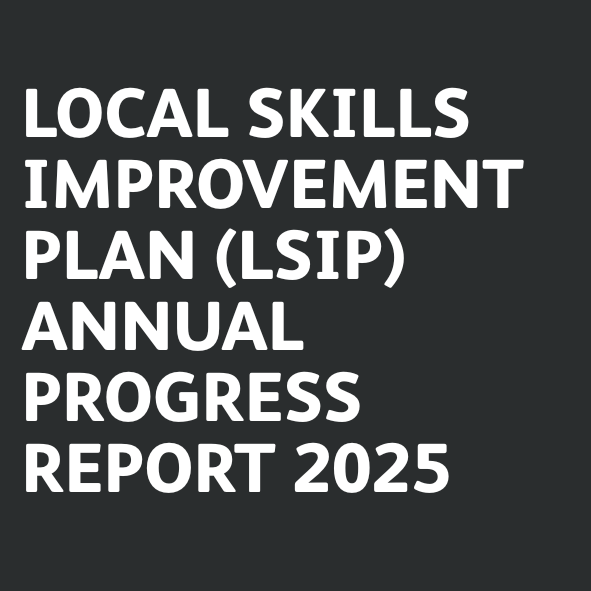The Local Skills Improvement Plan (LSIP) Annual Progress Report 2025 – published by Cumbria Chamber of Commerce – shows continuing significant progress is being made by Cumbria partners on tackling the skills challenges faced by businesses throughout the county.
The report tracks progress since the publication of the 2024 Annual Progress Report, which also showed substantial progress.
The LSIP extensively documented the multitude of skills challenges faced by Cumbrian businesses and identified key priorities for reform across areas including recruitment, basic and functional skills, employee behaviours and emotional intelligence, apprenticeships, accessing training, curriculum development as well as other challenges specific to individual sectors and professions. Hundreds of employers countywide, employer bodies, providers and other stakeholders have been engaged in producing and implementing the LSIP.
The newly published LSIP Progress Report outlines the further progress made in addressing these issues over the past year and plans for further activity. Initiatives outlined in the report include the following and much more:
- The launch in September 2024 of the Land and Nature Skills Service (LANSS), with the success of this initiative continuing to grow. LANSS is actively engaged with the range of stakeholders, promoting training and pathways to employers and individuals and engaging people in land-based training and career opportunities. It is also identifying and seeking to address skills gaps and training issues in the sector.
- Cumbria Tourism creating the Tourism Talent Hub as a result of the LSIP findings which gives a showcase for current vacancies and training opportunities for individuals and businesses, working with LSIF partners, and is helping change people’s perceptions of jobs in the Visitor Economy.
- Completion of activity on the £2.5m Local Skills Investment Fund (LSIF) programme, led by Lakes College, in partnership with Carlisle, Furness, Gen 2, Kendal, NR Training, SP Training and the University of Cumbria, with a focus is on low carbon and green skills in energy, construction, logistics, land-based, digital and catering & hospitality.
- A range of stakeholders coming together as a steering group and driving forward actions leading from the report on engineering and construction skills and employment challenges in Cumberland. This includes supporting the National College for Nuclear (NCFN) and UoC to undertake an initial piece of work towards developing a full proposal mapping qualification and conversion pathways and qualifications with Systems Engineering Framework as a test case.
- Introduction of Wave 6 of Skills Bootcamps, aligning with a number of LSIP outcomes by addressing skills shortages in sectors such as low carbon, digitalisation, construction, logistics, manufacturing, catering & hospitality, health & social care and transferrable ‘soft’ skills. Also project management and event safety management.
- Launch of the CITB Lancashire & Cumbria Employer Network, supporting identification of training priorities and enabling construction business to source training and upskill more easily.
Partners are continuing to work together to progress actions.
Work towards a refreshed LSIP is expected to start in October this year, which we expect to include more of a focus on future skills, AI and robotics, alongside more traditional skills.
The full 2025 Annual Progress Report is available to download on the Cumbria Chamber website or via this link: https://cumbriachamber.co.uk/local-skills-improvement-plan-lsip/
Managing Director of Cumbria Chamber of Commerce, Suzanne Caldwell said:
“This report clearly shows the continuing significant progress being made by LSIP partners to address the many skills challenges faced by businesses in the county. It’s fantastic the way that stakeholders continue to pull together on this – local businesses, employer bodies, skills providers, local authorities and other stakeholders. As ever a huge thank you to everyone who has been or is involved in any way. We’re looking forward to continuing to work together to achieve even more.”
Skills Minister Jacqui Smith said:
“I am pleased to see the progress being made to bring these Local Skills Improvement Plans to life.
“We remain committed to the LSIP model as part of our Plan for Change, and have strengthened the role that Mayors and Strategic Authorities will play in identifying and addressing the local skills issues in the plans.
“Skills England will work hand-in-hand with businesses, education providers, Mayors and Strategic Authorities, unions, and other bodies to tackle skills shortages, co- creating solutions to ensure more opportunities for young people and existing workers wherever they are based in the country.”






